Malaysia 5.0: Ready To Reinvent Malaysia’s Digital Economy
Malaysia Digital Economy Corporation Chairman Datuk Wira Dr Hj Rais Hussin Mohamed Ariff, shares on Malaysia’s Fourth Industrial Revolution (4IR) vision and the Malaysia 5.0 digital economy
Malaysia’s digital economy has been on a steady rise, growing at around 21% annually. In 2018, the digital economy contributed RM267.7 billion or 18.5% in the gross domestic product (GDP) which is among the highest within the ASEAN region. In the wake of the COVID-19 pandemic, the Malaysian government recognised this growth as a crucial driver to stimulate economic recovery.
The digital economy journey began with the government’s inception of the Multimedia Development Corporation (now known as the Malaysia Digital Economy Corporation [MDEC]) in 1996. It was initially tasked to promote the Multimedia Super Corridor Malaysia (MSC Malaysia), a national initiative by the Malaysian Government to promote both the national Information and Communication Technology (ICT) industry and provide a test-bed for the global ICT industry.
Datuk Wira Dr Hj. Rais Hussin Mohamed Ariff
Chairman of Malaysia Digital Economy Corporation (MDEC)
In 2017, the government launched a national level technical working group, led by the Ministry of International Trade and Industry (MITI) to develop a National Industry 4.0 policy and MDEC was part of the working group to develop a proactive measure to transform the Malaysian businesses and its related services. Industry 4.0 is one of Malaysia’s first steps in embracing the digital revolution that is expected to transform the nation.
The government has been continuously promoting the nation’s digital agenda through multiple policies and initiatives.
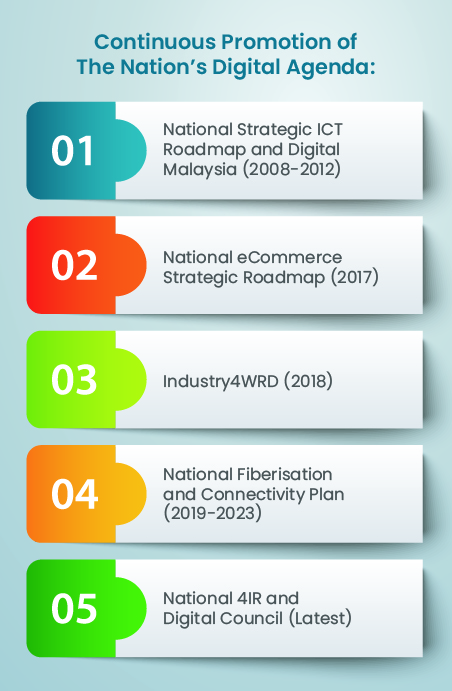
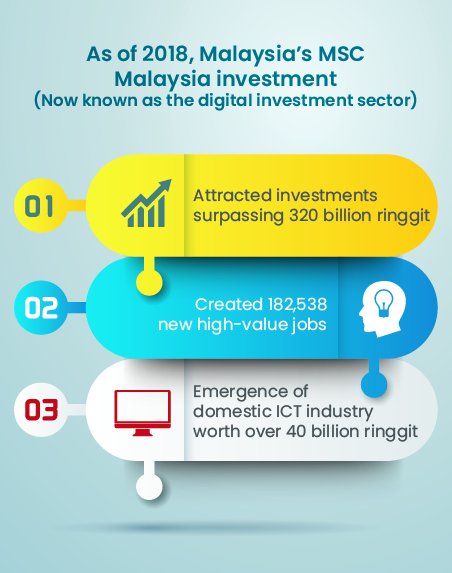
In 2019, the World Bank placed Malaysia among other high-income economies. Our digital adoption levels were reported to be higher than approximately a third of Organisation for Economic Co-operation and Development (OECD) countries.
“The COVID-19 pandemic allows for the exploration of new technologies that could lead to more sustainable, inclusive and resilient economies and societies. New technological paradigms are introduced, reflecting the greater need for collaboration across all stakeholders. Interconnectivity in this extraordinary situation is crucial for the nation to achieve shared prosperity.” - Datuk Wira Dr Hj. Rais Hussin Mohamed Ariff Chairman of Malaysia Digital Economy Corporation (MDEC)
A Prime Investment Destination
Consistent growth and uptake of digital tools in the past few years are indicative of Malaysia’s robust Digital Economy, and have caught the eyes of foreign investors. The Global Services Index™ (GSLI) 2019 by global strategy and management consulting firm A.T. Kearney saw Malaysia maintain its top three positions yet again, a constant since the study’s inception in 2004.
The Fintech adoption rate is also increasing in Malaysia and the region with consumers, wanting more financial inclusion, better fees, and easier ways to transfer funds. With high-speed broadband facilities and better digital literacy are also driving adoption.
Annual revenues in Southeast Asia’s conventional fintech space are forecasted to treble from $11 billion in 2019 to $38 billion by 2025, according to Bain Capital. Digital payments are reflecting this trend, with 22% of Malaysians using e-wallets and 28.2% cards, according to fintech service company Rapyd’s 2020 Asia Pacific eCommerce and Payment Study.
Furthermore, Malaysia has been crowned as the best country in the world to invest in or do business for 2019, according to the CEOWORLD magazine. Ranked first among 67 countries, the publication asserts that Malaysia remains the most attractive investment destination.
According to Malaysia Investment Development Authority’s (MIDA’s) Malaysia Investment Report 2018, these rankings include Bloomberg’s Emerging Market Scorecard where we again clinched the top spot in a line-up of 20 other emerging market peers, ahead of prominent nations like Russia (2nd), China (3rd) and Korea (10th).
Another accolade is Malaysia’s nine-spot leap to secure a global ranking of 15 among 190 economies in the World Bank Group’s Doing Business 2019 report.

The e-commerce sector is expected to exceed RM110 billion by 2020, making up nearly 40% of Malaysia’s digital economy (Source: DOSM)
4IR & Malaysia 5.0 Digital Economy
At the cusp of the Fourth Industrial Revolution (4IR), Malaysia is blessed with the opportunity to re-engineer the human experience using technologies that could decentralised authority and de-emphasise divisions along the lines of colour, creed and country – what the Japanese have coined as “Society 5.0”. This concept is now being adopted here as “Malaysia 5.0”.
Today, MDEC is poised to take on a leading role in catalysing the transition to Malaysia 5.0 as a new narrative for the nation. This includes introducing using emerging technologies that are now considered essential tools in the new Malaysia 5.0 digital economy.
Malaysia 5.0 directly addresses financial inclusion, access, performance and growth through the 4IR tools, such as fintech, blockchain and artificial intelligence (AI). These digital initiatives and hubs will emerge as core components for the next-gen infrastructure of every country. They will be the ones facilitating the interoperability of goods and services that are flowing through them with interconnectivity between various market sectors.
“Malaysia 5.0 directly addresses financial inclusion, access, performance and growth through the 4IR tools, such as fintech, blockchain and artificial intelligence (AI). These digital initiatives and hubs will emerge as core components for the next-gen infrastructure of every country.”
Recently, the government announced the National 4IR and Digital Council and The National Digital Infrastructure Plan (Jendela) to steer the socio-economic development of the country through the use of technologies to accelerate the growth of the digital economy.
This includes the formation of the National Technology and Innovation Sandbox to produce the right local talent who is highly digital-skilled in innovation and technologies with high-tech entrepreneurship capabilities.
4IR Technologies to Propel Nation Ahead
The COVID-19 pandemic has resulted in a global standstill and impacted several industries – some more than others. Industries such as Food & Beverage (F&B), Aviation, Travel, Tourism and Retail experience unprecedented disruptions in supply chains and consequently led to a surge in unemployment rates. The clarion call for the adoption of 4IR technologies has never been greater.
According to Datuk Wira Dr Hj Rais Hussin, the COVID-19 pandemic allows for the exploration of new technologies that could lead to more sustainable, inclusive and resilient economies and societies. New technological paradigms are introduced, reflecting the greater need for collaboration across all stakeholders. Interconnectivity in this extraordinary situation is crucial for the nation to achieve shared prosperity.
The country’s digital infrastructure and readiness to embrace technology allowed people to weather the storm. Ever since the Movement Control Order (MCO) was enforced, online services and e-wallet applications saw a considerable boost in users. People are ordering food, groceries and other necessities online to avoid contact and reduce the risk of COVID-19 infection.
Not only that, Malaysia’s research arms are actively deploying IR 4.0 solutions to curb the spread of the virus. Business owners and employees embraced the new normal by espousing WFH practices and utilising cloud-based video conferencing solutions to participate in online meetings.
This scenario is not unique to Malaysia alone. Around the world, technology is assisting scientists to study the novel coronavirus; tech creators and innovators are rolling out diseases monitoring applications to curb the outbreak.
Datuk Rais emphasised that the 4IR represents new ways in which technology can be embedded within societies. The integration of robotics, machine learning, AI, Internet of Things (IoT), blockchain, financial technology (fintech), data analytics and drone technology with the synergy of 5G infrastructure will displace conventional technology and significantly alter the way consumers, industries and businesses operate.
Sustainable Digital Economy & Value Creation
By embracing 4IR and “Malaysia 5.0” for the nation's economic recovery, Malaysia has achieved a balanced and equitable growth distribution across all layers of society. The emphasis on well-being and environmental conservation has always been at the forefront of development initiatives.
“Malaysia 5.0 can contribute to the economic cycle and to a more sustainable economy through which a more prosperous life could be created for the population regardless of race, age and class,” shared Datuk Rais.
In the agricultural sector, modernisation and digital transformation would guarantee food security, increased productivity, strengthen supply chains and enable digitally skilled workers. For instance, in oil palm plantations and paddy fields, drone technology and other agrotechnology has helped plants and farmers monitor and enhance crop production to generate a more sustainable and viable source of income.
The adoption of emerging technologies in traditional industries such as agriculture is aligned with Malaysia’s Sustainable Development Goals (SDG) to improve the well-being and income of farmers, fishermen, agro-based entrepreneurs and livestock breeders.
Earlier this year, the World Economic Forum (WEF) and MDEC announced a joint effort to co-design pilot policy principles and regulatory frameworks to accelerate the utilisation of drone tech for societal benefits. Aside from increasing crop yields, drones can be efficiently used to identify dangerous conditions without putting workers at risk, act as a lifeline for remote populations and reduce carbon emissions.
Thus, 4IR technologies could establish a much better living environment; create new, more purposeful employment opportunities; upskill the labour force; better health and education, and create smarter, greener cities.
“MDEC’s current role is to ensure Malaysia makes the Digital Leap and embrace the era of the Fourth Industrial Revolution to drive shared prosperity and to reinforce the country's role as the Heart of Digital ASEAN, a regional digital powerhouse and industry trailblazer.”

5G infrastructure and 4IR technologies will keep the Malaysian economy on an upward trajectory
Spearheading Digital Transformation
MDEC positions itself at the vanguard of digital transformation by focusing on stimulating inclusive, high-quality growth. Its current role is to ensure Malaysia makes the Digital Leap and embrace the era of 4IR to drive shared prosperity and to reinforce the country’s role as the Heart of Digital ASEAN, a regional digital powerhouse and industry trailblazer. These are focused on three primary focused drivers: empowering Malaysians with digital skills, enabling digitally-powered businesses, and driving digital investments.
By introducing nationwide digitalisation initiatives, the agency has remained true to the Government’s Shared Prosperity Vision 2030, and its goal to firmly establish Malaysia as the Heart of Digital ASEAN. This is done by channelling their efforts into assisting SMEs.
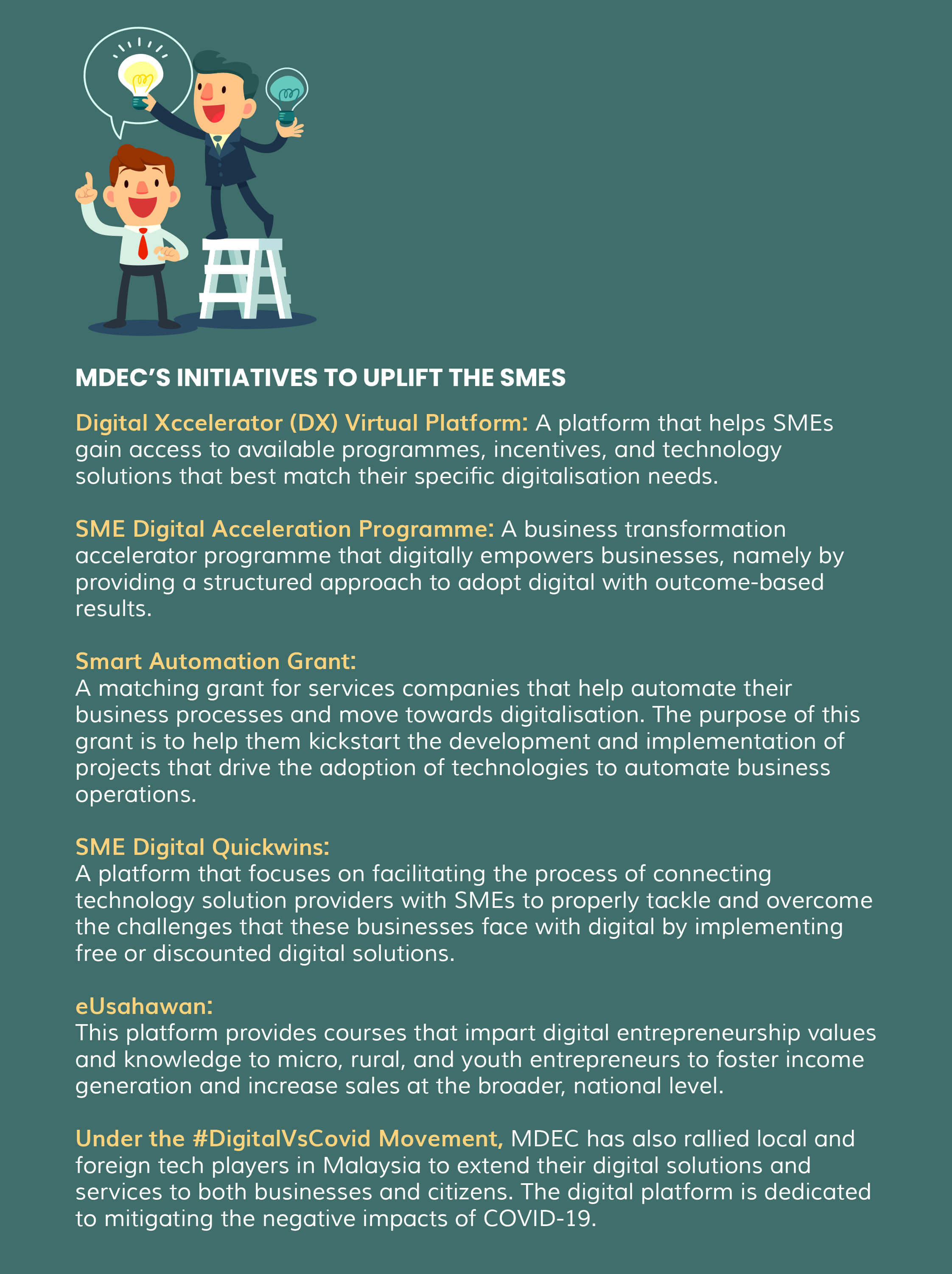
Keeping in close synergy, the government and MDEC partnered with e-commerce industry players to jointly roll out the PENJANA E-Commerce Initiatives to further encourage traditional companies to adopt e-commerce platforms while encouraging domestic consumption among local consumers to spur economic recovery.
Given that over 90% of Malaysian businesses can be categorised as SMEs, it is imperative that smaller businesses must be digitally empowered. Most MDEC initiatives and programmes are skewed towards supporting digitisation and digitalisation of “mom and pop” enterprises.
In It for the Long Haul
Malaysia’s digital economy is forecasted to contribute 20% to the economy by 2020, a surge of 2.2% since 2015. Backed by the launch of the Digital Free Trade Zone (DFTZ) in 2017 and the current global crisis, the e-commerce sector is expected to exceed RM110 billion by 2020, comprising nearly 40% of Malaysia’s digital economy.
The DFTZ is a strategic national initiative, spearheaded by MDEC to drive seamless cross-border trade through digitalisation and to facilitate access of local SMEs to vast opportunities in the global markets via e-commerce.
MDEC had the foresight to encourage the development and testing of next-generation technologies such as blockchain and fintech. This proved fundamental in attracting many start-ups and foreign investors to be based in Malaysia.
Addressing the growing demand for digitally skilled Malaysians, MDEC introduced the Tech Talent Development initiative to upskill and reskill the workforce. This has further sustained the nation’s investment appeal.
The Malaysian government also incentivised its industrial sectors by offering tax breaks for the electronics sector and related intellectual property (IP); automation equipment capital allowance for services; and provision of incentives for digitalisation and innovation efforts to accelerate digital transformation.
This long-term commitment by the government spells good opportunities for foreign companies that have embraced or are looking to implement IR 4.0 technologies in their business operations.
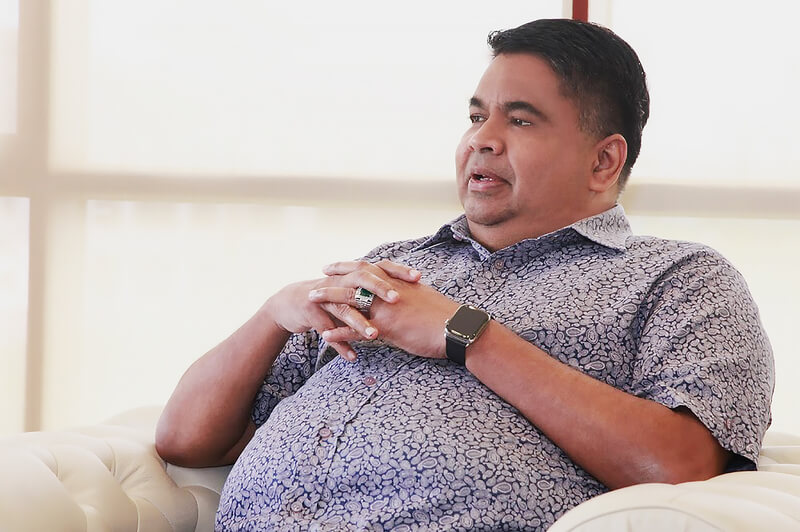
“The principal philosophy governing the diffusion of 4IR tech into Malaysia’s digital economy lies in the achievement of unified prosperity for all.”
MDEC’s Aspirations for the Nation
There is little doubt that 4IR is here to stay. However, it is in the implementation that will separate the progressive societies from repressive ones. As one, we need to facilitate the nationwide adoption of 4IR tools for all elements of society to weather the imminent displacement and stand abreast with international peers.
Datuk Rais concluded that the principal philosophy governing the diffusion of 4IR tech into Malaysia’s digital economy lies in the achievement of unified prosperity for all. The silver lining of this global crisis is the opportunity for retrospection, reinvention and to realign goals by placing society at the nucleus of 4IR technology and not in the peripherals.
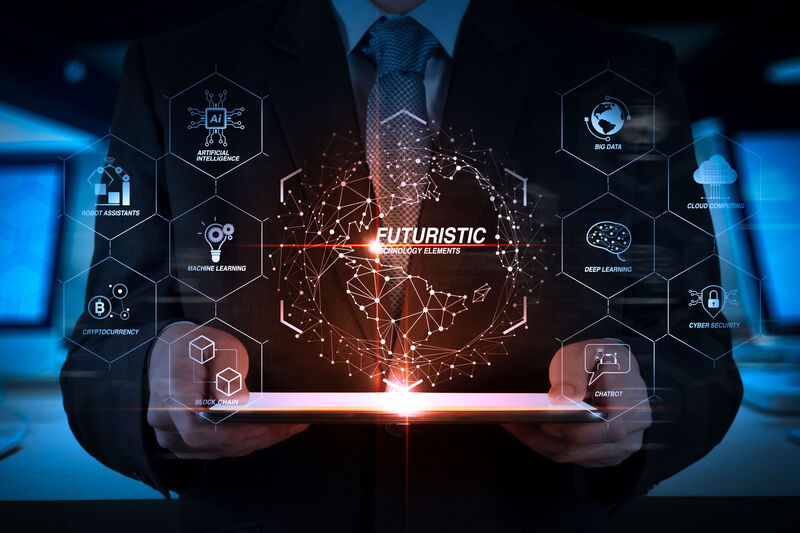
.png)





